Accounting for History
in Marxs Capital
Heterodox Studies in the Critique of Political Economy
Series Editor: Andrew Kliman
The outbreak of the global economic crisis in 2007 has led to renewed discussion of heterodox economics and Karl Marxs contributions. Heterodox Studies in the Critique of Political Economy contributes to, and seeks to, broaden the focus of these discussions. It welcomes proposals from authors working within various heterodox traditions. Contributions to the critique of political economy in the tradition founded by Marx are strongly encouraged, as are other marginalized voices and perspectives. Thus, nonacademics, scholars from Asia and the global South, and proponents of perspectives that are underrepresented in the existing academic heterodox literature are encouraged to submit proposals. Both single-authored works and edited collections are welcome.
Advisory Board
Alan Freeman, London Metropolitan University
Seongjin Jeong, Gyeongsang National University
Nick Potts, Southampton Solent University
Recent Titles in This Series
Is Marx's Theory of Profit Right?: The Simultaneist-Temporalist Debate ,
Edited by Andrew Kliman and Nick Potts
Accounting for Value in Marxs Capital : The Invisible Hand , by Rob Bryer
Accounting for History in Marx's Capital: The Missing Link, by Rob Bryer
Accounting for History
in Marxs Capital
The Missing Link
Rob Bryer
LEXINGTON BOOKS
Lanham Boulder New York London
Published by Lexington Books
An imprint of The Rowman & Littlefield Publishing Group, Inc.
4501 Forbes Boulevard, Suite 200, Lanham, Maryland 20706
www.rowman.com
6 Tinworth Street, London SE11 5AL, United Kingdom
Copyright 2019 by The Rowman & Littlefield Publishing Group, Inc.
All rights reserved . No part of this book may be reproduced in any form or by any electronic or mechanical means, including information storage and retrieval systems, without written permission from the publisher, except by a reviewer who may quote passages in a review.
British Library Cataloguing in Publication Information Available
Library of Congress Cataloging-in-Publication Data
ISBN: 978-1-4985-5163-2 (cloth: alk. paper)
ISBN: 978-1-4985-5164-9 (electronic)
 The paper used in this publication meets the minimum requirements of American National Standard for Information SciencesPermanence of Paper for Printed Library Materials, ANSI/NISO Z39.48-1992.
The paper used in this publication meets the minimum requirements of American National Standard for Information SciencesPermanence of Paper for Printed Library Materials, ANSI/NISO Z39.48-1992.
Printed in the United States of America
Contents
My thanks to Professor Andrew Kliman, for his invitation to explore Marx and accounting, for the opportunities opened by his work (with colleagues) on the TSSI, and for his editorial guidance, and to Professor David Oldroyd (University of Newcastle, UK), for his many helpful comments on the preliminary draft.
Special thanks are due to Vin Bryer and Roger Hulme, my intellectual partners, sine qua non.
I thank the following individuals and organizations for allowing me to quote from their published materials:
Andrew Kliman for permission to quote from Alternatives to Capitalism: What happens after the revolution?; Brill Academic Publishers for permission to quote from Alex Callinicos, Making History , 2004 Brill Academic Publishers; Peter Sarris, Economy and Society in the Age of Justinian , 2006 Cambridge University Press, reproduced with permission of Cambridge University Press through PLSclear; Emerald Publishing Ltd for permission to quote from Salvador Carmona and Mahmoud Ezzamel, 2007, Accounting and accountability in ancient civilizations: Mesopotamia and ancient Egypt, Accounting, Auditing & Accountability Journal 20 (2): 177209; Karl Marx and Frederick Engels: Collected Works, Lawrence & Wishart Ltd, reproduced with permission of Lawrence & Wishart Ltd through PLSclear; New Left Review for permission to quote from Karl Marx, Grundriss e, and the three volumes of Capital ; Christopher Wickham, Framing the Early Middle Ages: Europe and the Mediterranean 400800 , 2005 Oxford Publishing Ltd, reproduced with permission of Oxford University Press through PLSclear; Radical Philosophy for permission to quote from John Mepham, 1972, The Theory of Ideology in Capital , Radical Philosophy 2: 1219; Barry Hindess and Paul Q Hirst, Pre-capitalist modes of production, 1975 Routledge and Kegan Paul, reproduced by permission of Taylor & Francis Books UK; Stuart Hall , The problem of ideology Marxism without guarantees, Journal of Communication Inquiry 10 (2): 2844, 1986 SAGE Publications, r eprinted by Permission of SAGE Publications, Inc.; Extracts from Karl Marxs Theory of History: A Defence by Gerald Cohen, reprinted by permission of Peters Fraser & Dunlop (www.petersfraserdunlop.com) on behalf of the Estate of Gerald Cohen.
Front Cover Illustrations
Top left | Fall of Babylon by Cyrus II, 539 BC |
Top right | Barbarian king Atilla with Pope St. Leo before the fall of Rome |
Bottom left | Bayeux Tapestry Battle of Hastings |
Bottom right | Lenin addressing a crowd during Russian Revolution in 1917 |
Figures
Marxs Theory of History |
The Administrative Structure of the Apion Household |
Using a Polyptych |
Interpretations of the Proletarian Dictatorship |
Socialist Accounting Day 1 |
Fishers Theory of Income and Capital |
Tables
Historical Materialism as World Accounting History |
Marxs Pre-capitalist Categories |
Mentalities and Phenomenal Forms |
Cohens Interpretation of Marxs Modes of Production |
Mesopotamian Accounting for Labor Performance |
Man-Day Equivalence for an Ancient Egyptian Building Project |
Demosthenes Calculation |
Columellas Calculation |
Wickhams Interpretation of Marxs Modes of Production |
Annual Account of a Steward on the Apion Estate c.565/6 |
Labor Expenditures on the Autourgia |
Expenditures for the Landlord |
Total Cash Receipts and the Equivalent Number of Prostasiai |
Roman Land Tax and Estate Accounting (AD c.4001300) |
Extracts from Capitulare de Villis |
Capitulare de Villis in Charge and Discharge Format |
The Royal Estates in the Brevium Exempla |
Example English Manorial Cash Account |
Marxs Socialist Reproduction and Distribution of Surplus Account |
Capitalist Reproduction and Circulation |
Socialist Reproduction and Circulation |
Implementing Marxs Concept of Socialism |
Correcting the NCBs Profit or Loss Account 1983/4 |
DEB | Double-Entry Bookkeeping |
FASB | Financial Accounting Standards Board |
FMP | Feudal Mode of Production |
GAAP | Generally Accepted Principles of Accounting |
IASB | International Accounting Standards Board |

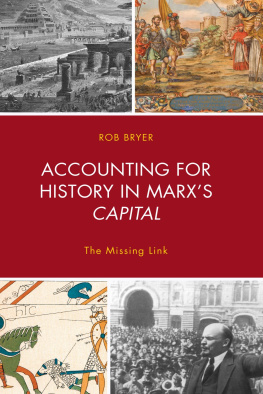
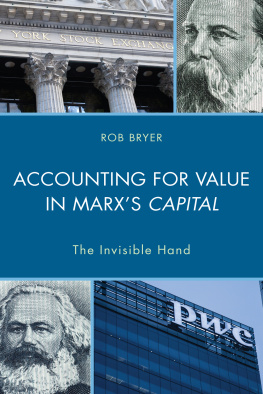
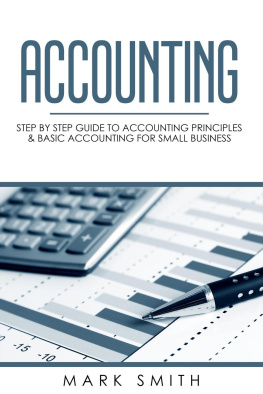

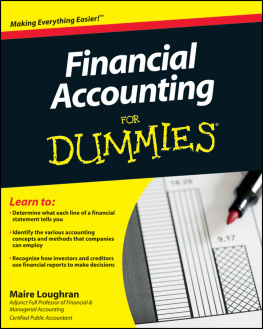
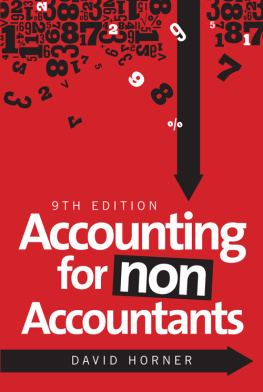
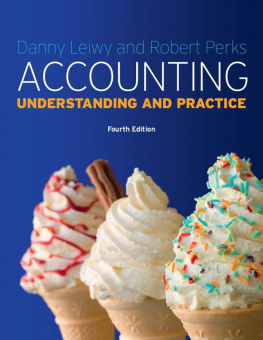

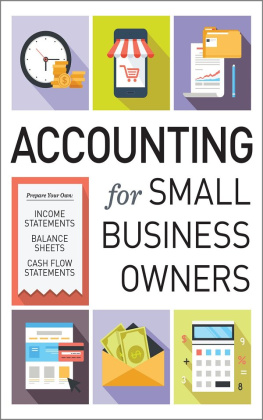
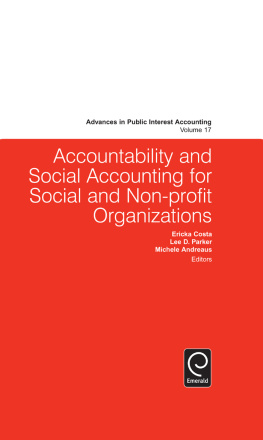
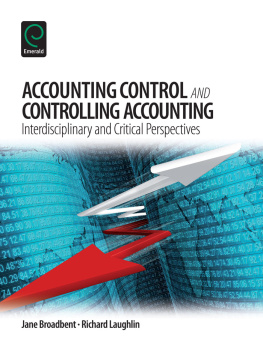



 The paper used in this publication meets the minimum requirements of American National Standard for Information SciencesPermanence of Paper for Printed Library Materials, ANSI/NISO Z39.48-1992.
The paper used in this publication meets the minimum requirements of American National Standard for Information SciencesPermanence of Paper for Printed Library Materials, ANSI/NISO Z39.48-1992.